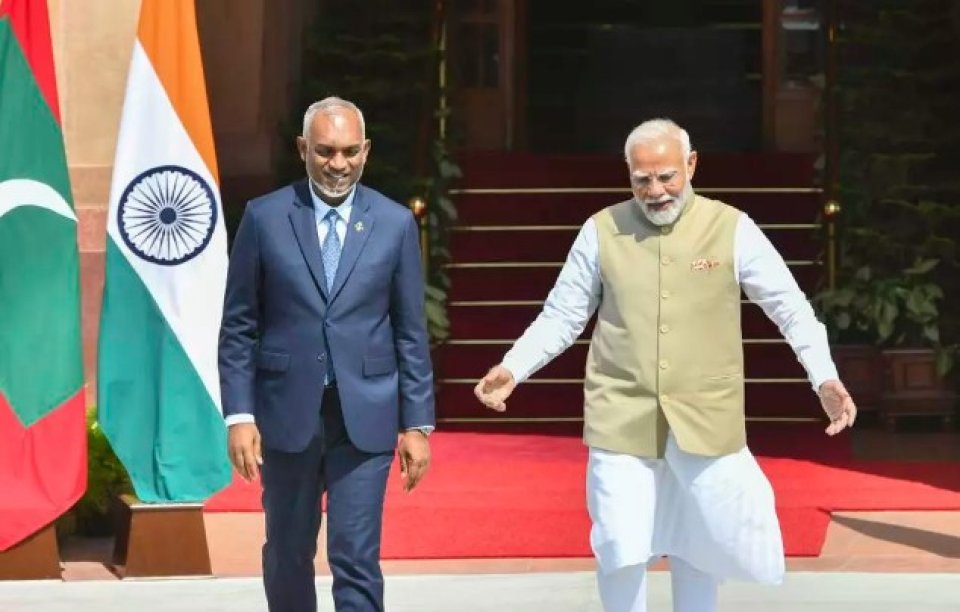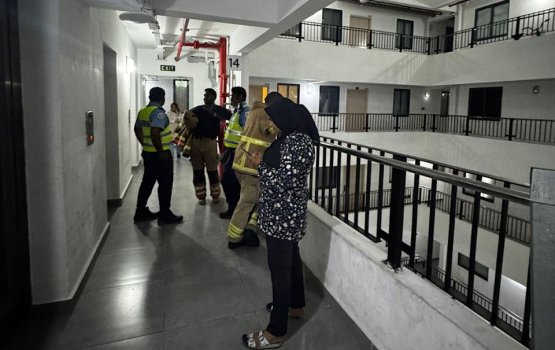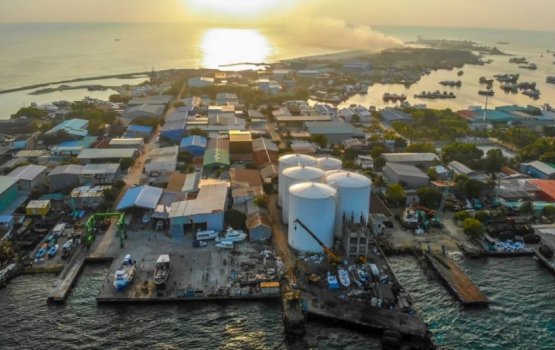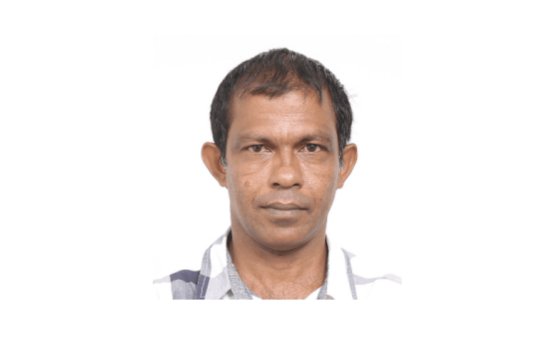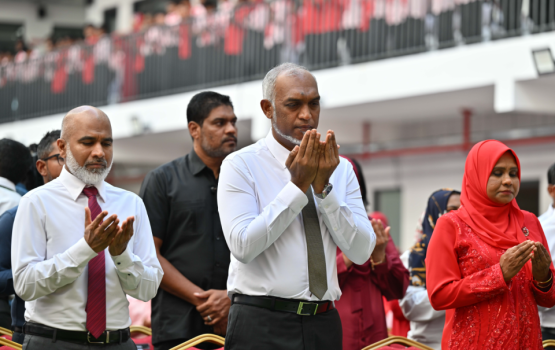President of the Maldives Dr. Mohamed Muizzu, becoming the first national leader to publicly denounce the violence, has strongly condemned the recent terrorist attack in Pahalgam, India, The incident, which left several civilians dead and many more injured, has sparked regional alarm as fears of an escalating conflict between India and Pakistan grow.
In a statement issued on social media platfom X shortly after the news broke, President Muizzu expressed deep sorrow over the loss of innocent lives and reaffirmed the Maldives’ commitment to combating terrorism.
The president's swift response signaled the gravity with which the Maldivian government views both the humanitarian and geopolitical implications of the attack.
Nasheed and Shahid Add to Growing Political Response
Following Muizzu’s lead, former President Mohamed Nasheed also condemned the attack, while offering pointed commentary on the broader implications for regional stability.
"India has suffered so much from terrorism. I hope they can root out and bring to justice the terrorists and their sponsors responsible for this latest attack,” Nasheed said.
In a more urgent statement, he warned: “A full-blown war between India and Pakistan has begun, with significant consequences for South Asia, the Indian Ocean, and the Maldives. We must prepare for the potential impact on our security, safety, and economy.”
Former Foreign Minister and current opposition leader Abdulla Shahid also voiced his condemnation via social media, describing the attack is a threat to global peace.
“Utterly devastated by the terrorist attack in #Pahalgam, India.Terrorism in all its forms and dimensions cannot be tolerated—it’s a threat to peace everywhere. Our thoughts are with those who lost loved ones, the injured, and the people of India.”
A Region on Edge: Economic and Strategic Impacts on the Maldives
Although not directly involved, the Maldives finds itself vulnerable to the broader consequences of heightened India-Pakistan tensions. The country’s economic lifeline—tourism, particularly from India and China—is especially sensitive to regional instability.
“Even the perception of conflict in South Asia can disrupt bookings,” said Sameer, enteprenuer and a orner of a guesthouse in Baa Atoll. “We’re concerned and carefully monitoring the situation.”
With tourism contributing nearly a third of GDP, the Maldives cannot afford a prolonged dip in arrivals or disruptions in regional air and sea traffic.
Strategic Location and Security Dependencies
The Maldives occupies a strategic position along key shipping lanes in the Indian Ocean and has historically depended on India for defense and crisis management. Any escalation in the region could test that security relationship and place the Maldives in a difficult position diplomatically.
Analysts suggest that the country may face pressure to align more closely with India, particularly given past military support from New Delhi, including the 1988 intervention during a coup attempt.
A Fine Diplomatic Balance
Analysts also says that while the Maldives has maintained relations with both India and Pakistan, its deepening ties with India—economically and militarily—make neutrality harder to maintain during high-stakes conflict.
Latest Developments
Early Wednesday, Pakistan said it had “credible intelligence” that India intends to carry out military action against it in the “next 24-36 hours on the pretext of baseless and concocted allegations of involvement in the Pahalgam incident.”
Pakistani officials claim that India is planning a military strike following the expiration of a deadline on Sunday for Pakistani citizens to leave the country—excluding those on medical visas. Despite the deadline passing, many families were still rushing to the Attari border crossing in northern Punjab in a bid to return to Pakistan.
There was no immediate comment from Indian officials. Indian government officials said Prime Minister Narendra Modi has “given complete operational freedom to the armed forces to decide on the mode, targets and timing of India’s response to the Pahalgam massacre,” speaking on condition of anonymity to discuss sensitive deliberations.
United Nations Secretary-General Antonio Guterres, in separate phone calls with India and Pakistan, stressed the need to “avoid a confrontation that could result in tragic consequences.” The U.S. State Department also called for de-escalation and said that Secretary of State Marco Rubio would be speaking soon to the Indian and Pakistani foreign ministers.

